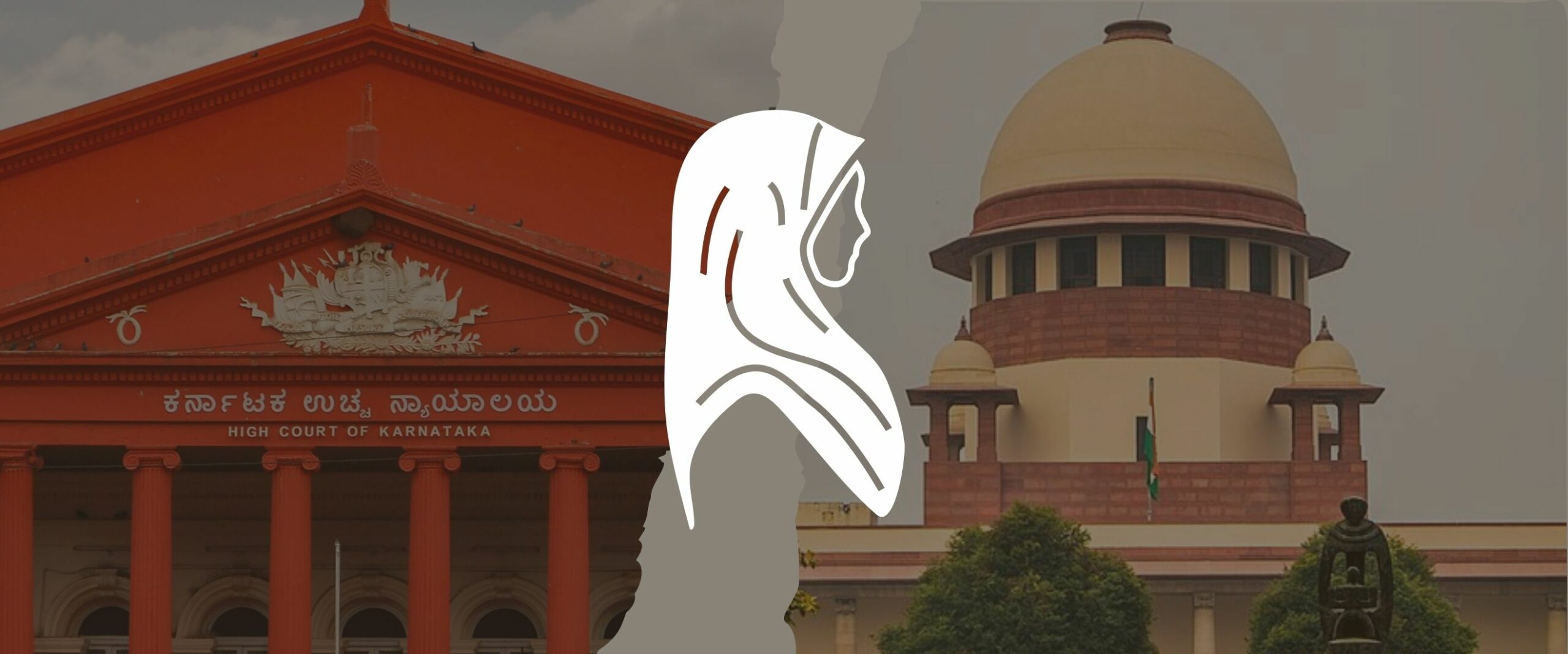Analysis
‘Essentially Religious’ Hearings on the Hijab Ban
DESK BRIEF: Arguments on Religion took over half the SC time, despite all parties agreeing that it should not be the focus of the case.

Extensive arguments on the Essential Religious Practices (ERP) test took up a lion’s share of the Supreme Court’s time in the Hijab Ban challenges. “(Karnataka) High Court should not have gone into the ERP test”, Justice Sudhanshu Dhulia said close to the end of the hearings. Justices Hemant Gupta and Dhulia reserved Judgment in the case on September 22nd, 2022 .
What is the ERP Test? Why is it Contested?
The ERP doctrine, developed over years of SC jurisprudence, governs which religious practices are protected under Articles 25 & 26 of the Constitution. The ERP test allows Courts to recognise beliefs and practices that are so ‘essential’ to a religion that doing away with them would change the very nature of that religion. The ERP doctrine dictates that only these essential practices are protected from government interference.
A unique problem with the ERP Test resurfaced in the Hijab hearings—who decides what is essential to a religion? Different interpreters of a religious text and members of a religious community believe different practices to be essential. Scholars, and in some cases the Courts themselves, have questioned if a secular Judiciary is competent to determine essentiality. The fate of the ERP test remains pending before a 9-Judge Bench in the Sabarimala Review.
Strikingly, in the SC, supporters and opposers of the Hijab ban agreed that the Karnataka High Court’s focus on the ERP test was misplaced. The High Court Judgment upheld the ban on the basis that the Hijab is not essential to Islam. Students opposing the ban argued that violations of personal liberties needed closer attention in this case than ERP. The State government, supporting the ban, admitted that the High Court’s focus on ERP was wrong, but inevitable because the students brought up the argument in the first place.
Despite this, ERP arguments took up 14.5 hours of the 24 hours in which the Court heard the case.
Since the Supreme Court is specifically hearing an appeal against the HC Judgment, it is bound to address the ERP problem. However, Figure 1 shows us that the case raises concerns about a host of other fundamental rights as well.
Right to Equality, Privacy and Dress: Personal Liberty Arguments at SC
Muslim students argued that the ban violated the Right to Equality by specifically targeting Muslim women. They pointed out that Governments must be more inclusive while imposing restrictions on religious practices. However, the Karnataka government argued that the ban furthered equality by mandating a common uniform for students from all religious communities.
Next, students pointed out that the right to dress as one pleases is a part of the right to dignity under Article 21. It was also protected by the Freedom of Speech and Expression under Article 19. These individual rights outweigh any institution’s concerns about discipline. So, any restrictions on the right must have a reasonable basis. The Karnataka government responded that it respects all religious symbols, but schools were not the place to display religious identity.
Justices Gupta and Dhulia have three weeks to write their Judgment on the Hijab ban, before Justice Gupta retires on October 16th, 2022. Will the Judges follow in the High Court’s footsteps and base their decision on the ERP test? Will they refer the case to a Constitution Bench to consider the validity of ERP? Or will the Court choose to focus on the arguments of equality, right to education, dignity and freedom of expression instead? Keep an eye on SCO’s case archive to find out.
SCO is now on YouTube! Subscribe to receive quick daily and weekly updates on the Supreme Court. Watch the latest SCO Weekly here.